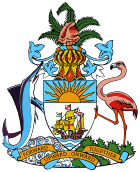
The 2001 United Kingdom general election was held on Thursday 7 June 2001, four years after the previous election on 1 May 1997, to elect 659 members to the British House of Commons. Under the leadership of Tony Blair, the governing Labour Party was re-elected to serve a second term in government with another landslide victory, returning 413 of the 418 seats won by the party in the previous general election, a net loss of 5 seats, though with significantly lower turnout than before—59.4%, compared to 71.3% in the previous election. Tony Blair went on to become the first Labour Prime Minister to serve a consecutive full term in office. It was dubbed "the quiet landslide" by the media.

The House of Representatives is the lower house of the bicameral parliament of the Netherlands, the States General, the other one being the Senate. It has 150 seats which are filled through elections using a party-list proportional representation. It sits in the Binnenhof in The Hague.

The 1945 United Kingdom general election was held on 5 July 1945, with polls in some constituencies delayed until 12 July and in Nelson and Colne until 19 July, because of local wakes weeks. The results were counted and declared on 26 July, to allow time to transport the votes of those serving overseas.

The 1950 United Kingdom general election was the first ever general election to be held after a full term of Labour government. The election was held on Thursday 23 February 1950. Despite polling over 700,000 votes more than the Conservatives, and receiving more votes than they had during the 1945 general election, Labour obtained a slim majority of just five seats—a stark contrast to 1945, when they had achieved a comfortable 146-seat majority. There was a national swing towards the Conservatives, whose performance in terms of popular vote was dramatically better than in 1945. Labour called another general election in 1951.

The 1955 United Kingdom general election was held on 26 May 1955, four years after the previous general election. It resulted in a substantially increased majority of 60 for the Conservative government under new leader and prime minister Sir Anthony Eden against the Labour Party, then in its twentieth year of leadership by Clement Attlee.

The 1935 United Kingdom general election was held on Thursday 14 November 1935 and resulted in a large, albeit reduced, majority for the National Government now led by Stanley Baldwin of the Conservative Party. The greatest number of members, as before, were Conservatives, while the National Liberal vote held steady. The National Labour vote also held steady, but the resurgence in the main Labour vote caused over a third of their MPs, including party leader Ramsay MacDonald, to lose their seats.

The 1924 United Kingdom general election was held on Wednesday 29 October 1924, as a result of the defeat of the Labour minority government, led by Ramsay MacDonald, in the House of Commons on a motion of no confidence. It was the third general election to be held in less than two years.

The All India Trinamool Congress is a national level political party in India. Founded on 1 January 1998, the party is led by its founder Mamata Banerjee, who is the current chief minister of West Bengal. Following the 2014 general election, it is currently the fourth largest party in the Lok Sabha with 34 seats.

The General Zionists were a centre-right Zionist movement and a political party in Israel. The General Zionists supported the leadership of Chaim Weizmann and their views were largely colored by central European culture. Their political arm is an ancestor of the modern-day Likud.

The 2005 United Kingdom general election was held on Thursday 5 May 2005, to elect 646 members to the House of Commons. The Labour Party led by Tony Blair won its third consecutive victory, with Blair becoming the only Labour leader beside Harold Wilson to form three majority governments. However, its majority now stood at 66 seats compared to the 160-seat majority it had previously held. As of 2019, it remains the last general election victory for the Labour Party.

The 2010 United Kingdom general election was held on Thursday, 6 May 2010, with 45,597,461 registered voters entitled to vote to elect members to the House of Commons. The election took place in 650 constituencies across the United Kingdom under the first-past-the-post system. None of the parties achieved the 326 seats needed for an overall majority. The Conservative Party, led by David Cameron, won the largest number of votes and seats, but still fell 20 seats short. This resulted in a hung parliament where no party was able to command a majority in the House of Commons. This was only the second general election since the Second World War to return a hung parliament, the first being the February 1974 election. Unlike in 1974, the potential for a hung parliament had this time been widely considered and predicted, and both the country and politicians were better prepared for the constitutional process that would follow such a result. The coalition government that was subsequently formed was the first coalition in British history to eventuate directly from an election outcome. The hung parliament came about in spite of the Conservatives managing both a higher vote total and higher share of the vote than the previous Labour government had done in 2005, when it secured a comfortable majority.
The United States Senate elections of 1852 and 1853 were elections which had the Democratic Party gain two seats in the United States Senate, and which coincided with the 1852 presidential election. Only six of the twenty Senators up for election were re-elected.

The United States Senate elections of 1858 and 1859 were elections which had the Republican Party gain five additional seats in the United States Senate, but the Democrats retained their majority. That majority would erode in 1860 with the secession of the southern states leading up to the Civil War. In Illinois, incumbent Stephen A. Douglas (D) and challenger Abraham Lincoln (R) held a series of seven debates, known as the "Lincoln–Douglas debates."
The United States Senate elections of 1836 and 1837 were elections that had the Jacksonian coalition emerge as the Democratic Party, and the Adams, or Anti-Jackson, coalition emerge as the Whig Party
The United States Senate elections of 1826 and 1827 were elections that had the majority Jacksonians gain a seat in the United States Senate.
The United States Senate elections of 1860 and 1861 were elections corresponding with Abraham Lincoln's election to the presidency. The nascent Republican Party increased their Senate seats in the general elections, and after southern Democrats withdrew to join the Confederacy, Republicans gained control of the United States Senate. To establish a quorum with fewer members, a lower total seat number was taken into account.

The 2015 United Kingdom general election was held on 7 May 2015 to elect 650 members to the House of Commons. It was the first general election at the end of a fixed-term Parliament. Local elections took place in most areas on the same day.

The 2017 United Kingdom general election took place on Thursday 8 June 2017, having been called just under two months earlier by Prime Minister Theresa May on 18 April 2017 after it was discussed in cabinet. Each of the 650 constituencies elected one Member of Parliament (MP) to the House of Commons. The governing Conservative Party remained the largest single party in the House of Commons but lost its majority, resulting in the formation of a minority government with a confidence-and-supply arrangement with the Democratic Unionist Party (DUP) of Northern Ireland.












